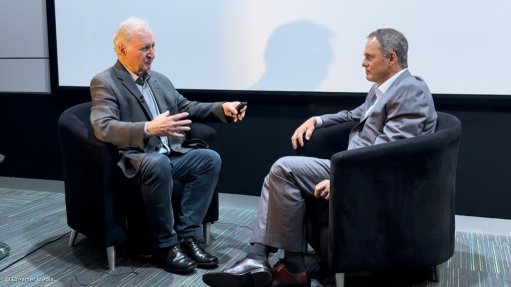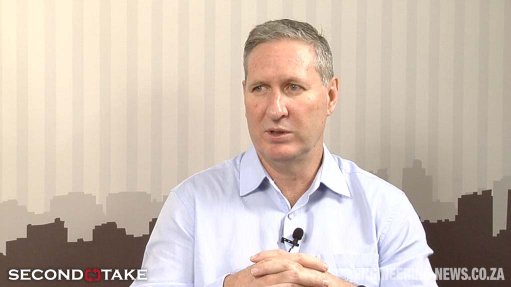South Africa’s AI Future Hinges on Skills Development
This article has been supplied and will be available for a limited time only on this website.
By: Ntsako Baloyi - Senior Manager withing the Technology business at Accenture, Africa
The rapid development of artificial intelligence (AI) is changing the way businesses operate, how consumers interact with technology, and even how governments deliver services. Across industries – from banking, media, telecoms, mining and chemicals to public service, consumer goods and retail – AI is driving efficiencies, unlocking innovation, and creating new opportunities.
Yet, as AI adoption accelerates globally, South Africa faces a serious challenge: a critical shortage of AI-related skills. Without urgent intervention, this gap threatens to limit the country’s competitiveness, widen inequality, and leave millions of workers unprepared for the future. If AI is the engine of the next industrial revolution, then skills are the fuel, and South Africa is running dangerously low.
A recent World Economic Forum report estimated that by 2025, half of all work activities could be automated by AI-driven processes. While this signals new opportunities, it also raises the alarm: workers who lack AI literacy will be left behind.
South Africa is already struggling with high unemployment rates, particularly among young people. The AI-driven future presents a paradox: on one hand, AI and automation could replace many low-skilled jobs. On the other, AI is creating new roles that require specialised expertise including data scientists, AI engineers, cybersecurity professionals, and AI ethics specialists. The problem? South Africa simply does not have enough trained professionals to meet this demand.
Many businesses are struggling to fill AI-related positions due to a lack of qualified talent. Multinational companies are either outsourcing AI-related work to more developed markets or paying a premium to recruit foreign talent. This is not a sustainable solution.
To prevent the AI revolution from deepening economic divides, South Africa must take a proactive approach to AI skills development. This requires a coordinated effort between government, businesses, and educational institutions.
South Africa’s school and university curricula need a fundamental redesign to integrate AI literacy at all levels. Basic AI concepts, coding, and data analysis should be introduced as early as high school, while universities and technical colleges must offer specialised AI and machine learning courses.
Currently, only a handful of South African universities offer dedicated AI programmes. This needs to change. Government and private sector funding should be directed towards AI research hubs, scholarships, and AI-focused boot camps that equip young professionals with in-demand skills.
Businesses cannot wait for the education system to catch up. Companies must take the lead in AI upskilling by offering training programmes for employees across all levels. AI is not just for data scientists, it is increasingly relevant for marketing professionals, HR teams, financial analysts, and customer service representatives. But the responsibility shouldn't stop at internal teams. To ensure a more inclusive and future-ready workforce, companies should also invest in accessible AI education initiatives for the broader public, empowering communities with the skills needed to thrive in a digitally-driven economy.
South African businesses should follow global best practices by partnering with AI training providers to offer micro-credentials, mentorship programmes, and hands-on AI projects.
The South African government has an opportunity to drive AI upskilling by offering tax incentives to businesses that invest in AI training. Additionally, public-private partnerships can help create AI skills hubs in historically disadvantaged communities, ensuring that AI literacy is not limited to privileged sectors of society.
South Africa already has a precedent for successful skills development initiatives in fields like engineering and accounting. A similar approach can be applied to AI, ensuring that young South Africans are equipped with the skills needed to thrive in an AI-driven economy.
If South Africa fails to act swiftly, the AI skills gap will widen, exacerbating unemployment and economic exclusion. Businesses will struggle to compete with international firms that have access to highly skilled AI talent. Meanwhile, South African consumers will be left to rely on imported AI solutions rather than locally developed technologies tailored to the country’s unique challenges.
In contrast, a well-executed AI skills strategy can position South Africa as an AI leader on the African continent. By building an AI-savvy workforce, the country can attract investment, foster innovation, and ensure that AI serves as a tool for economic empowerment rather than a force of disruption.
The AI revolution is here. The question is whether South Africa will seize the opportunity or be left behind. Businesses, educational institutions, and government leaders must act now to ensure that AI skills development becomes a national priority.
Companies should begin by auditing their AI skills gaps and investing in targeted training programmes. Universities and technical colleges must expand AI course offerings and integrate AI literacy into mainstream education. Government must introduce AI-focused policy frameworks and financial incentives to drive large-scale skills development.
South Africa has all the ingredients to build a thriving AI-powered economy—if it makes the right investments today. The future is not waiting. It is time to bridge the AI skills gap and ensure that South Africans are ready to shape, lead, and benefit from the AI revolution.
Comments
Press Office
Announcements
What's On
Subscribe to improve your user experience...
Option 1 (equivalent of R125 a month):
Receive a weekly copy of Creamer Media's Engineering News & Mining Weekly magazine
(print copy for those in South Africa and e-magazine for those outside of South Africa)
Receive daily email newsletters
Access to full search results
Access archive of magazine back copies
Access to Projects in Progress
Access to ONE Research Report of your choice in PDF format
Option 2 (equivalent of R375 a month):
All benefits from Option 1
PLUS
Access to Creamer Media's Research Channel Africa for ALL Research Reports, in PDF format, on various industrial and mining sectors
including Electricity; Water; Energy Transition; Hydrogen; Roads, Rail and Ports; Coal; Gold; Platinum; Battery Metals; etc.
Already a subscriber?
Forgotten your password?
Receive weekly copy of Creamer Media's Engineering News & Mining Weekly magazine (print copy for those in South Africa and e-magazine for those outside of South Africa)
➕
Recieve daily email newsletters
➕
Access to full search results
➕
Access archive of magazine back copies
➕
Access to Projects in Progress
➕
Access to ONE Research Report of your choice in PDF format
RESEARCH CHANNEL AFRICA
R4500 (equivalent of R375 a month)
SUBSCRIBEAll benefits from Option 1
➕
Access to Creamer Media's Research Channel Africa for ALL Research Reports on various industrial and mining sectors, in PDF format, including on:
Electricity
➕
Water
➕
Energy Transition
➕
Hydrogen
➕
Roads, Rail and Ports
➕
Coal
➕
Gold
➕
Platinum
➕
Battery Metals
➕
etc.
Receive all benefits from Option 1 or Option 2 delivered to numerous people at your company
➕
Multiple User names and Passwords for simultaneous log-ins
➕
Intranet integration access to all in your organisation




















